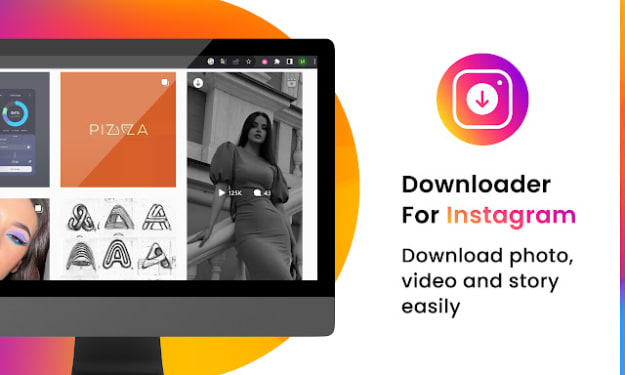What Is DoomScrolling?
The Dangers Of DoomScrolling

Many of us are familiar with this routine. You log onto your favorite social media platform and check the COVID-19 reports, then move on to the state of the economy, and climate change, finally ending with the latest debacle created by that politician who pushes all your buttons. Let’s not forget the latest school shootings and the gun control debate, the healthcare chaos, and the attacks on democracy. And that’s just the local news. What about the Middle Eastern wars, Russian cyber-attacks, and Australian wildfires? There seems to be no end to the catastrophic news scrolling across our screen.
Bad news has always been around, of course. But why is it having such an impact on our mental health lately — and what can we do about it? Let’s take a good, hard look at the practice of doomscrolling (otherwise called doomsurfing), how it may be impacting your mental health, and what you can do to replace this negative habit with positive, fulfilling ones that improve the quality of your life. Let’s begin!
The Truth About Doomscrolling
Doomscrolling is the obsessive intake of bad news, even when it creates anxiety and worry. Despite knowing how it makes you feel, you just can’t seem to stop yourself from consuming this toxic information. Finance reporter Karen Ho originally discovered the term on Twitter, and it turns out that there are good reasons why we are so likely to fall into the destructive habit. Media psychologist Pamela Rutledge explains: “The tendency to doomscroll is a result of how the human brain is wired. Our brains instinctively pay attention to any potentially dangerous situation as part of the biological imperative of survival. Our brains are designed to constantly scan the horizon for potential threats. Since threats are more important to our survival than other information, we pay more attention to the negative information than to the positive. When there are no answers or conflicting answers, more information doesn’t increase our sense of safety, so we scroll in pursuit of better answers, and so on.”
It’s a seemingly never-ending cycle of negativity and unhappiness. Mike Brooks, co-author of Tech Generation: has this to say about doomscrolling. “Fifty thousand years ago, when we were on a savannah, if we missed the bad news that there was a pride of lions stalking a watering hole, we could have been eaten. But if we missed the good news that a tree nearby was bearing fruit, we likely would have lived to see another day.” So, if you’ve been consumed by doomscrolling, don’t feel bad. You’re certainly not alone. It’s human nature to pay attention to new information, especially if that information might help us respond to danger and ultimately, survive.
But the truth is, in today’s times, doomscrolling isn’t just unhealthy, it can lead to missed deadlines, incomplete tasks, and cost you valuable time that should be spent with friends and family. The habit also isn’t an easy one to break, especially if you have a mobile device and are used to consuming news throughout the day via apps or favorite websites. But thankfully, there are things you can do to quickly replace this toxic habit with ones that will add value to your life, and improve your mindset. Before we get to that, let’s take a closer look at how doomscrolling may be impacting your daily life in ways you may not even be aware of.
How Doomscrolling Impacts Our Lives
Your brain responds to negative information by activating your “lizard brain”, particularly a structure called your amygdala, a collection of cells near the base of your brain. This sets off your natural response to danger in your environment. You become hyper-vigilant and start scanning the terrain for threats. In other words, you’re on high-alert and your mind and body are laser focused on potential harmful situations that may arise. Your limbic system switches into fight-or-flight mode and sharpens your reaction times in an effort to save your life. Your pulse spikes, your body may grow stiff, and you aren’t able to relax.
“The part of our brain that governs doomscrolling is ancient,” says Dr. Aditi Nerurkar, a Harvard physician. “It’s an adaptive response to stress, meaning our species has learned to keep going and thrive and survive. Scanning for danger, looking around, making sure we’re all OK; that is a normal and healthy response to stress.” But if you combine that evolutionary affinity for bad news with the marketing tactics that social media companies use to keep you hooked on their content, doomscrolling seems nearly inevitable. Larry Rosen, co-author of The Distracted Mind: Ancient Brains in a High-Tech World, explains it this way: “The problem is that tech companies have set up a system where you feel that you can’t stop: infinite scrolling, auto-play, and other tricks keep you glued to the screen. If you find a doom-and-gloom article online, and you want to continue in that vein, it’s hard to stop because there’s always more, and you don’t want to miss out.”
The pandemic, as Dr. Nerurkar explains, is a real time of acute stress. “What we’re doing is, we’re always scanning for danger.” Our brain is already revved up into fight-or-flight mode by the global pandemic, so it’s only natural that we be on the lookout for even more danger on the horizon. This preference for negative news has now become an example of evolutionary mismatch. While it was helpful to our savannah-dwelling ancestors, nowadays the bad news comes from every corner of the globe and in reality, it often has little to no impact on our daily lives. We simply don’t need to consume it. We choose to.
The physical reaction is real, though, and doomscrolling is an unhealthy habit to get into. With the constant threat of COVID-19, the protective mechanisms of your amygdala can be switched on way too easily — and the hyper-vigilant behavior which results may become compulsive. “Too much negative information biases our perceptions,” says Rutledge. “A steady diet of gloom and doom makes the world seem more dangerous and uncertain than it already is.” Brooks adds, “The more we doomscroll, the more worried we get, the more we want to look for things about negative news, and we keep checking, and it makes us worse.” “Doomscrolling is not healthy because it can lead to a sense of helplessness and a sense that there is nothing effective to be done,” says Mari Verano, a marriage and family therapist.
“Doomscrolling is looking repeatedly at ‘proof of the bad,’ which strengthens the brain’s negative bias.” Doomscrolling has a number of negative consequences on your life, and wasting your time is the least of these. Last July, the New York Times reported that Americans were spending nearly 50 percent more time on their screens than they had before COVID-19. You could be getting a lot of work done in that time. This is also time you could be spending with family and other loved ones. They’re your real support network, not social media or the internet. Whatever you’re searching for, Nicole Spector of Today says you might feel “a sense of helplessness and a sense that there is nothing effective to be done.”
All this time online is affecting our mental health, increasing our risk of stress, anxiety, and depression, as Today reports. These negative reactions can then lead to heightened aggressive behavior and hostility. And the effects aren’t just psychological. Spector also points out that physical reactions such as headaches, stomach problems, increased muscle tension, feeling tired easily, lack of appetite, trouble falling asleep, and poor sleep quality are also connected. “Being constantly showered with fear-inducing content can lead to a variety of anxiety issues that can cause physical and mental discomfort,” says Dr. Pavan Madan, a psychiatrist at Community Psychiatry. “Being exposed to excessive negative content can exacerbate depression in those predisposed to it. When faced with fear or threat, people may even resort to hostile or aggressive behavior.
Staying up late at night while doomscrolling not only encroaches on your sleep time but also makes it harder to fall asleep or have a restful sleep.” “Anxiety and stress,” says Pamela Rutledge, “are the byproducts of uncertainty about the safety of the environment. Uncertainty triggers the desire to search for information to feel more in control. When we search for information in this state, we are particularly sensitive to distressing or emotionally threatening news. Rather than increase our sense of control, negative news validates our fears, heightens our anxiety, and increases our internal ‘need to know.’” The sheer volume of the information out there works to further heighten anxiety, she goes on to state. It’s impossible to keep up with everything, and you’re not only anxious about the environment, but preoccupied with missing something that might be vital to your survival.
So, you keep looking and fall into a downward spiral often seen in chronic depression and anxiety. Looking for news in an environment full of negative content triggers anxiety. Anxiety makes you want to know more so you’ll feel more in control. The need to know more makes you scan even more news, and around and around you go. “This downward spiral,” Pamela Rutledge reports, “will only stop when we actively override our instinctive tendencies.” Self-regulation and minimizing the time you spend consuming negative information is far easier said than done, and doomscrolling is especially difficult to control if you’ve been at it for a long time. It takes a good bit of determination, focus, and cognitive energy to overcome the instincts and emotional reactions that drive that type of negative behavior.
In other words, you’ll need to become far more self-aware if you want to overcome the habit of doomscrolling. And even more importantly, you’ll want to replace that toxic habit with a positive one so that you’re filling up the time usually spent scrolling for information with things that uplift you. That’s the easiest way to overcome this habit and create positive routines that add value to your life. Pamela also goes on to say: “If you use the metaphor of the elephant as the instinctive, emotional brain and the rider as the cognitive, rational brain, it’s easy to see what we have is an elephant run amok and the rider will have a big job to get the beast back under control.” These days, it’s typical that you’re socially distanced from your support system of friends and family. You’re worried about what is on the horizon, by what is to come, as well as unseen enemies.
Your sense of trust has been shaken, and you’re worried that you won’t be in control of your life. You’ve experienced a situation that we haven’t dealt with before and your anxiety may be at an all-time high, particularly when you’ve grown accustomed to spending so much time taking in negative content. Studies have linked poor mental health to regular exposure to negative news sources that cover traumatic events like natural disasters, terrorist bombings, and of course, the global pandemic. The more news you consume, the more likely you are to become stressed, anxious, and depressed. And it isn’t your fault — many of us have become doomscrollers, even if we never intended to.
A 2014 study followed 4,675 American citizens following the Boston Marathon bombings. The study collected information on how much media they consumed and what reactions they had. Study participants who spent more than six hours a day following media coverage of the event were nine times more likely to also have symptoms of acute stress than those who watched only a minimal amount of news. This sort of research can help us understand how we respond to negative, toxic news and how it can affect our mental health. Research psychologist Roxane Cohen Silver says, “We’ve had so much news from COVID-19 and the economic breakdown to the reckoning with racial injustice combined with hurricanes and firestorms. It’s clear the stress of the election has added to all this.” We’ve seemed to go from one crisis to another lately, without time to process the information or recover from the bad news. “So much of it is open-ended and uncertain at the moment,” adds Graham Davey, professor emeritus of psychology at the University of Sussex. “That alone is something that people find extraordinarily stressful.”
Psychologists call this an “intolerance of uncertainty,” and it’s a vicious cycle that’s hard to get out of. According to Davey, “There will be a lot of people out there … who find listening to the news stressful and anxiety-provoking but can’t stop doing it because they need to know what on Earth is going on.” In the 1990s, Davey started to notice that the news was taking on increasingly negative tones where bad news was all that was being highlighted, and good news rarely shown. “The number of TV channels began to increase,” he says, “and the news had to compete with entertainment for its viewers.” Davey and his colleagues created a study to determine how both positive and negative headlines affected people’s moods and overall well-being. They welcomed 30 people and split them into three different groups: those that consumed primarily positive news, those that watched a combination of negative and positive news (in balanced segments), and those that primarily watched negative news stories.
The moods of each participant were measured before and after the study and the results were clear (and predictably so): Those who primarily watched negative news ended the study in a far more anxious and fearful state of mind than those given the neutral or positive news. “It also had a knock-on effect,” says Davey. “People in the negative group were more likely to worry about their own private concerns.” In other words, reading or watching negative news can make you anxious about far more than the content you are watching, but all of the stressors in your life that may suddenly feel difficult to manage. In another study, Roxane Cohen Silver studied the effects of media coverage during the 9/11 terrorist attacks. More than 1,770 American adults completed an online survey one to three weeks after the attacks. The survey asked how much TV news they watched and about their mental and physical health.
Silver then followed up with these participants, giving them similar assessments for the following three years. Results showed that TV exposure at the time of the attack was associated with symptoms of post-traumatic stress even two or three years afterward. And you didn’t have to live near where the attacks occurred, says Judith Andersen, a health psychologist at the University of Toronto who collaborated with Silver on the study. “It was dependent on how much media you consumed.” And all of this is just compounded by your technology. All of the digital information you’re gathering, from your internet searches to your social media interactions, are ruled by complex algorithms that provide more of the same. Further, social media platforms and internet search engines are designed to learn your habits and content preferences and so they keep providing more of what they believe you like in order to keep you engaged for longer periods of time.
So, even if you don’t intend to, your search habits are directly contributing to the level of negative content you consume every day. “Searching for danger will increase ‘threatening’ content, amplifying perceptions of danger and vulnerability and further increasing negative emotions,” says Rutledge. “We are drawn to danger signals like moths to a flame in that primal attempt to feel better, unwittingly feeding ourselves the very emotions we wish to avoid.” It’s going to take a conscious effort to stop this doomscrolling habit, outsmart Google, and take control over your news feeds, social media, and your search results by changing the type of content you’re regularly searching for.
It will take some time and consistent effort to begin changing the algorithm that provides you with your daily helping of negative news, but it’ll be worth it in the end when you feel the positive effects of lowering stress levels and protecting your mental space. “Otherwise,” warns Rutledge, “the nature of online information flows will continue to feed the elephant.”
How to Break the Habit
Changing direction so that you’re consuming less negative news will require an active, focused and consistent change of behavior, but the great thing about it is that you truly are in full control. Once you break the habit by replacing the time you spend scrolling for negative information with positive, uplifting habits that nourish your soul, you’ll immediately feel the benefits. To start, minimize your news sources. You don’t need to spend time on dozens of news sites, and once you limit the number of websites you visit, you’ll subsequently, limit the amount of negative news that reaches you. If you currently visit more than five or six websites, chances are that a lot of what you’re seeing is just more of the same, catering to your habit of doomscrolling while also reactivating those stressors and anxiety triggers because you’re seeing a repeated announcement of the same frightening situations and events.
To change this, you’ll need to start monitoring the emotional impact that information is having, no matter the source. If it’s feeding your anxiety and causing you to be in a constant state of panic, you need to start cutting that source off. “Start to front-load happy stuff,” says Rutledge, “to provide an emotional buffer.” Taking a break is one way to help and the easiest habit-breaker to begin with. Stepping away for a bit by shutting off your computer, or placing your mobile device out of sight can help reset your brain and calm your fears. A short break will also help you to be more logical and less emotional when you evaluate the content you’re seeing.
Rutledge recommends asking yourself:
Is this relevant and useful information — or am I just “rubbernecking” at an accident site?
How does this make me feel?
Is this interfering with other things I’d rather be doing?
Is this causing me problems like becoming angry or unpleasant to be around?
Am I actually investigating the information to make sure it’s true before I let my emotions carry me away?
Am I investigating the truth of the information before I share it?
This isn’t recommending that you bury your head in the sand like an ostrich, ignoring actual important events. But if you monitor your news intake, and make sure it’s both useful and necessary to your life, you’ll be able to “avoid many of the paralyzing emotions that, in fact, make you less effective in the rest of your life, from relationships and work to social advocacy.”
Fear and anger actually decrease your ability to empathize with others and understand the world around you. You become so consumed by problems in the world that have no real impact on your life that in turn, it impacts your life. Rutledge says, “Recognize that, thanks to the elephant, we are essentially hard-wired to doomscroll. Don’t beat yourself up. Just increase your awareness and control over your information consumption.” Our brains evolved in very different circumstances from what exists today, and what worked for them at that time is no longer needed for survival. Your ancestors needed to look for those lions on the savannah, not examine “the firehose of information (and misinformation) that is flowing 24/7 during a pandemic and social upheaval.”
So instead of mindlessly doomscrolling and spending hours a day consuming negative news that you really don’t need to know about, recognize that your instinct is to do just that, and fight those natural habits. Protect your mental space and your time. Be conscious of the amount of information you’re consuming every day and start segmenting it into a “need to know”, “want to know”, “don’t need to know”. That will give you a clear picture as to how much information you’re taking in based on natural curiosity (and pure habit), and make it easier for you to weed out anything that doesn’t directly impact your life.
Assess your feelings as you read and stop if you start feeling anxious and stressed. And finally, always do your best to make sure the information you’re consuming is accurate and based on fact, not opinion, before you allow yourself to react to it, or share it with others.
Final Words
You can end the cycle of doomscrolling, but it’s going to take a bit of effort on your part. Just as doomscrolling has become a habit, so must your avoidance become its replacement habit. You’ll need to remain conscious of what you’re doing throughout each day, becoming diligent in holding yourself accountable and being self-aware. It’s too easy to just mindlessly scroll news sites, or spend hours of your day consuming negative content. Whenever you feel the desire to scan news sites, keep in mind that doomscrolling leads to stress, anxiety, and depression. Think about how this habit is lowering your quality of life and taking away from the time you could be spending on other things that make you happy.
“Opt out of … news alerts,” says Dr. Nerurkar. “Become intentional about signing on to read. When you start being intentional, you start using other aspects of your brain. Make it difficult just a little bit. You need to move away from the mindless repetition and shift to intentional checking.” Nerurkar also advises you replace your phone with something equally as important. “Nature doesn’t like a vacuum,” he says, “so keep something where you used to have your phone — like a book of poetry that you really enjoy. So when you read a quick passage and get that dopamine hit you’re looking for — but it’s a pleasant, uplifting, inspirational, and perhaps calming jolt.” With some work and effort, you can break the vicious cycle of doomscrolling habit and regain control of your life. Doomscrolling doesn’t have to be a part of your life, nor do you have to feel helpless and stressful during these chaotic times. You’ve got this.





Comments
There are no comments for this story
Be the first to respond and start the conversation.